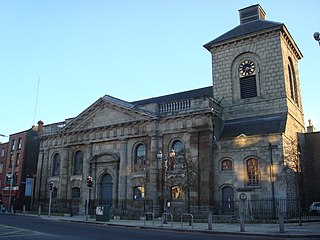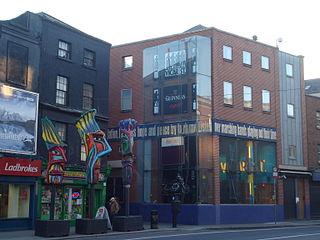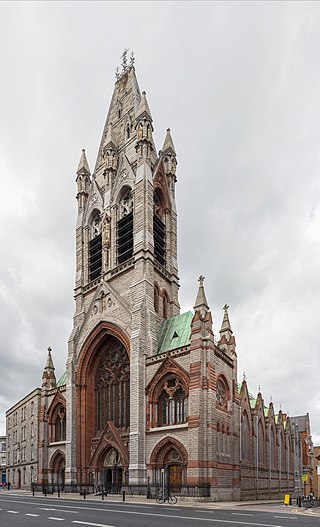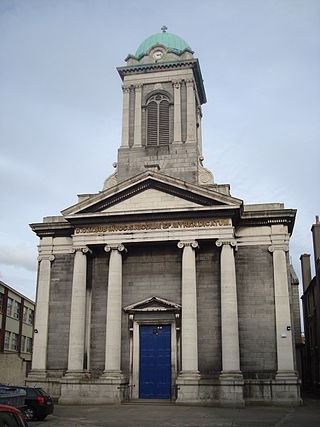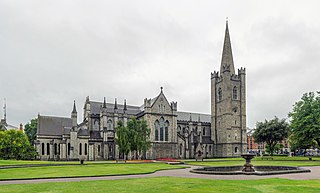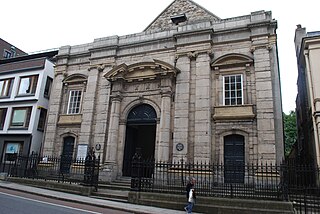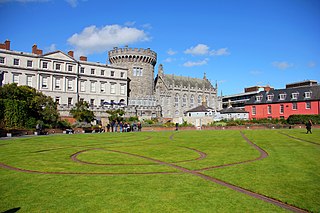Self-guided Sightseeing Tour #3 in Dublin, Ireland
Legend
Guided Free Walking Tours
Book free guided walking tours in Dublin.
Guided Sightseeing Tours
Book guided sightseeing tours and activities in Dublin.
Tour Facts
2.7 km
40 m
Experience Dublin in Ireland in a whole new way with our self-guided sightseeing tour. This site not only offers you practical information and insider tips, but also a rich variety of activities and sights you shouldn't miss. Whether you love art and culture, want to explore historical sites or simply want to experience the vibrant atmosphere of a lively city - you'll find everything you need for your personal adventure here.
Activities in DublinIndividual Sights in DublinSight 1: Guinness Storehouse
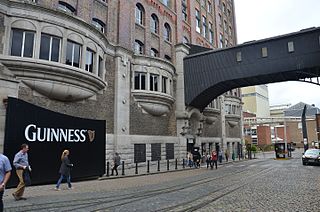
Guinness Storehouse is a tourist attraction at St. James's Gate Brewery in Dublin, Ireland. Since opening in 2000, it has received over twenty million visitors.
Sight 2: St Catherine's Church
St. Catherine's Church, on Thomas Street, in Dublin, Ireland, was originally built in 1185. It is located on what was once termed the "Slí Mhór", a key route that ran westwards across Ireland from Dublin. The church was rebuilt in its present form in the 18th century by John Smyth.
Wikipedia: St Catherine's Church, Dublin (Church of Ireland) (EN), Website
Sight 3: Vicar Street
Vicar Street is a concert, performing arts centre and events venue in Dublin, Ireland. Located on Thomas Street, Dublin 8, Vicar Street has capacity for 1,050 people for seated performances and 1,500 people for standing gigs. The venue is owned by Harry Crosbie and operated by Peter Aiken. Since opening in 1998, the venue has become a popular setting for a wide range of acts including stand-up comedy, drama performances and a variety of concerts. The first artist to play on the Vicar Street Stage was local singer/songwriter Shay Cotter. Major international recording artists have performed in Vicar Street, such as Bob Dylan in 2000, Neil Young in 2003, Adele in 2008, Paul Simon and Ed Sheeran in 2011, and Lana Del Rey in 2013.
Wikipedia: Vicar Street (EN), Website, Twitter, Facebook, Youtube
Sight 4: St Augustine and St John
The Church of St. Augustine and St. John, commonly known as John's Lane Church, is a large Catholic church located on Thomas Street, Dublin, Ireland. It was opened in 1874 on the site of the medieval St. John's Hospital, founded c. 1180. It is served by the Augustinian Order of friars.
Sight 5: St. Nicholas of Myra
The Church of St Nicholas of Myra (Without) is a Roman Catholic church on Francis Street, Dublin that is still in use today. The site has been used as a place of worship as far back as the 12th century. The current church was built in 1829 and dedicated to Saint Nicholas in 1835.
Wikipedia: Church of St Nicholas of Myra Without, (Roman Catholic) (EN)
Sight 6: Saint Patrick's Cathedral
Join Free Tour*Saint Patrick's Cathedral in Dublin, Ireland, founded in 1191 as a Roman Catholic cathedral, is currently the national cathedral of the Church of Ireland. Christ Church Cathedral, also a Church of Ireland cathedral in Dublin, is designated as the local cathedral of the Diocese of Dublin and Glendalough.
Sight 7: St Werburgh's
St. Werburgh's Church is a Church of Ireland church building in Dublin, Ireland. The original church on this site was built in 1178, shortly after the arrival of the Anglo-Normans in the town. It was named after St. Werburgh, abbess of Ely and patron saint of Chester. The current building was constructed in 1719. It is located in Werburgh Street, close to Dublin Castle.
Sight 8: Dublin Castle
Dublin Castle is a major Irish government complex, conference centre, and tourist attraction. It is located off Dame Street in central Dublin.
Sight 9: Chester Beatty Library
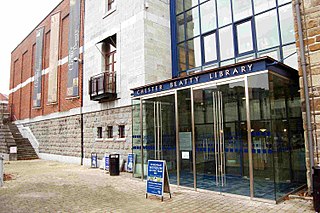
The Chester Beatty Library, now known as the Chester Beatty, is a museum and library in Dublin. It was established in Ireland in 1953, to house the collections of mining magnate, Sir Alfred Chester Beatty. The present museum, on the grounds of Dublin Castle, opened on 7 February 2000, the 125th anniversary of Beatty's birth and was named European Museum of the Year in 2002.
Share
Disclaimer Please be aware of your surroundings and do not enter private property. We are not liable for any damages that occur during the tours.
GPX-Download For navigation apps and GPS devices you can download the tour as a GPX file.
